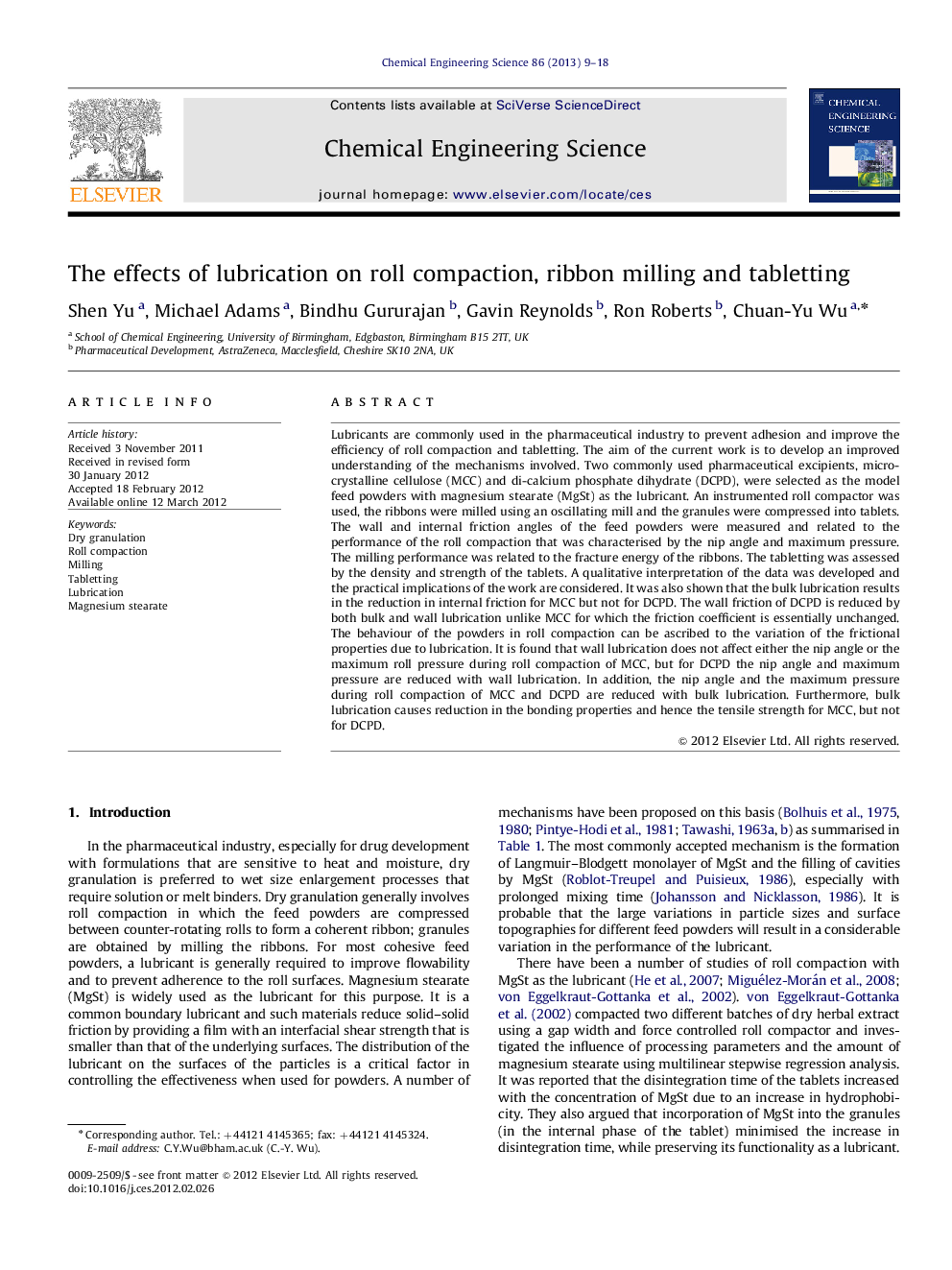| Article ID | Journal | Published Year | Pages | File Type |
|---|---|---|---|---|
| 155442 | Chemical Engineering Science | 2013 | 10 Pages |
Lubricants are commonly used in the pharmaceutical industry to prevent adhesion and improve the efficiency of roll compaction and tabletting. The aim of the current work is to develop an improved understanding of the mechanisms involved. Two commonly used pharmaceutical excipients, microcrystalline cellulose (MCC) and di-calcium phosphate dihydrate (DCPD), were selected as the model feed powders with magnesium stearate (MgSt) as the lubricant. An instrumented roll compactor was used, the ribbons were milled using an oscillating mill and the granules were compressed into tablets. The wall and internal friction angles of the feed powders were measured and related to the performance of the roll compaction that was characterised by the nip angle and maximum pressure. The milling performance was related to the fracture energy of the ribbons. The tabletting was assessed by the density and strength of the tablets. A qualitative interpretation of the data was developed and the practical implications of the work are considered. It was also shown that the bulk lubrication results in the reduction in internal friction for MCC but not for DCPD. The wall friction of DCPD is reduced by both bulk and wall lubrication unlike MCC for which the friction coefficient is essentially unchanged. The behaviour of the powders in roll compaction can be ascribed to the variation of the frictional properties due to lubrication. It is found that wall lubrication does not affect either the nip angle or the maximum roll pressure during roll compaction of MCC, but for DCPD the nip angle and maximum pressure are reduced with wall lubrication. In addition, the nip angle and the maximum pressure during roll compaction of MCC and DCPD are reduced with bulk lubrication. Furthermore, bulk lubrication causes reduction in the bonding properties and hence the tensile strength for MCC, but not for DCPD.
Graphical abstractFigure optionsDownload full-size imageDownload high-quality image (236 K)Download as PowerPoint slideHighlights► Bulk lubrication reduces internal friction for MCC but not for DCPD. ► The wall friction of DCPD is reduced with wall lubrication but not for MCC. ► Wall lubrication does not affect roll compaction of MCC. ► The nip angle and the maximum pressure are reduced with bulk lubrication. ► Bulk lubrication reduces tensile strength for MCC, but not for DCPD.
